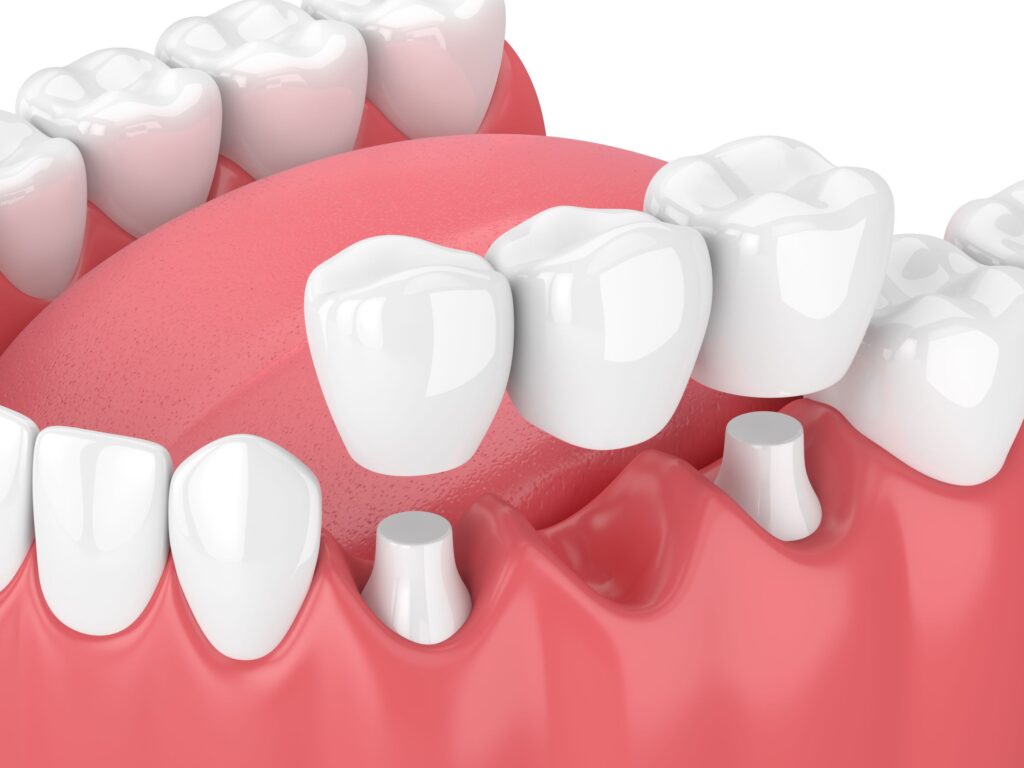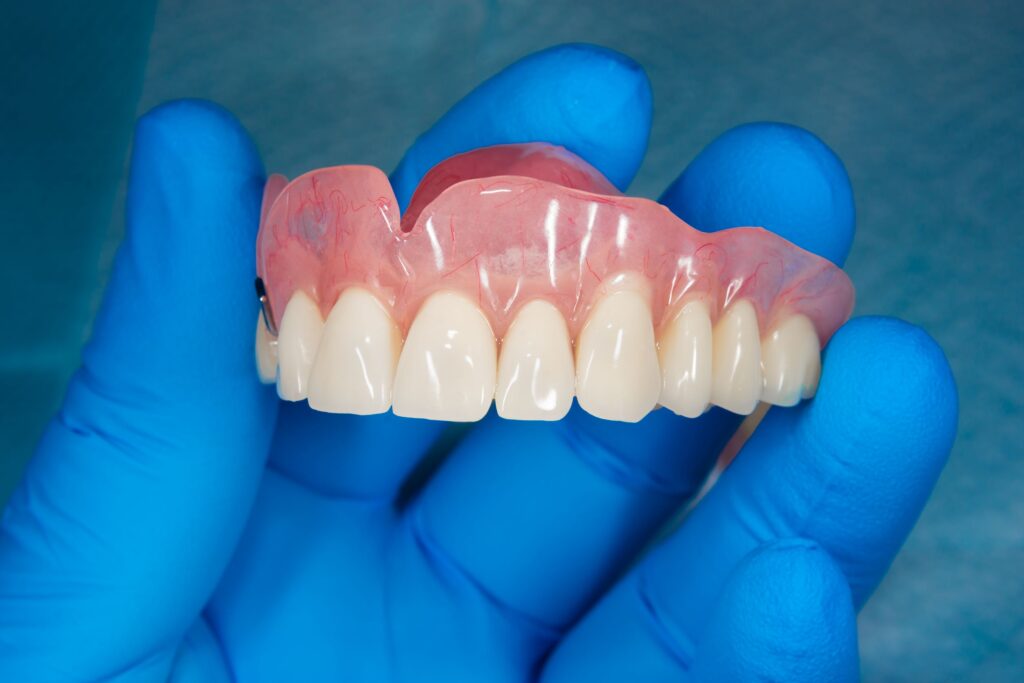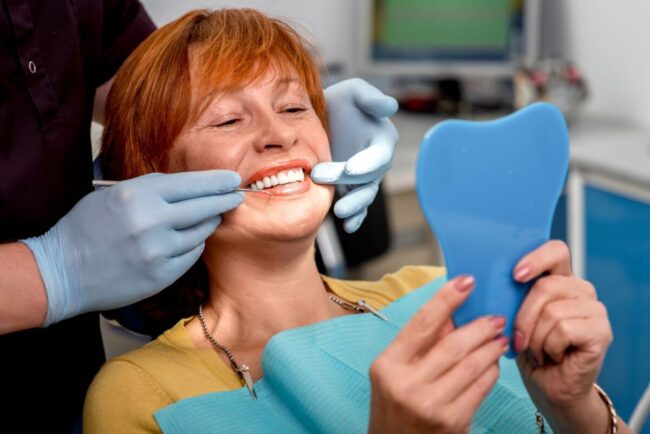Having missing or damaged teeth can truly diminish your quality of life. Not only does this make it harder for you to eat the foods you love, but it can affect your physical and mental health in numerous ways.
If you are missing teeth, you may have heard about numerous possibilities for tooth replacement and have debated on which method is best for you. Whichever route you choose, the important thing is that you do something about it — and as soon as possible.
Two viable options here at our Rochester dental office are dentures and dental bridges. Your decision will likely depend on the condition of your existing teeth, your budget, and your timeframe.
Following are the basic facts about dental bridges and dentures, along with the benefits of each.
Dental Bridges
Dental bridges remain an excellent option for restorative dentistry, and technology for dental bridges advances on a regular basis. Aesthetic, customized porcelains engineered into a bridge can be designed to eliminate spaces of every size.
They’re typically most ideal to fill the space left by one or two missing teeth. A bridge that is any longer than that might not be as sturdy and would require additional steps.
In a dental bridge, a fake tooth called a pontic would fill the space, and it would be anchored by crowns that would fit on the natural teeth in front of and behind the fake tooth. All three or four of these elements would be combined into one piece. After this bridge is placed, it cannot be removed, but it may have to be replaced about 7 to 10 years later.
Before the bridge can be cemented in, the dentist may have to shape the teeth in front of and behind the missing tooth to make room for the crown. While this is typically considered a downfall of bridge placement, it may be a benefit if those existing teeth need reinforcement to begin with.
To maintain dental bridges, you must brush them as you would your normal teeth, but you may need to use special floss in order to get under the bridge.
Key Benefits of Bridges
- It’s a relatively quick process. Only two or three appointments would be needed.
- They’re typically less expensive than some other tooth restoration options.
- Insurance companies may partially cover the cost.
- They feel, look, and function like natural teeth.
- They’re long-lasting and durable.

As shown here, a dental bridge consists of a pontic anchored by crowns.
Full & Partial Dentures
Dentures are typically ideal to replace several missing or damaged teeth in a row.
Traditional full dentures are what most people think of when they hear this word. Dentures are a full set of teeth used to replace missing teeth, and they are removable. They can be used for the upper or lower jaw or both.
In order to make dentures, existing damaged teeth may be extracted if necessary. The dentist will then take impressions of your jawbone structure and remaining teeth, and a model of your teeth will be created based on the impressions. The tooth structures are typically made of acrylic resin plastic, but may include materials such as nylon, porcelain or metal depending on your needs, preferences, and budget. Unlike dental bridges, dentures would include fabricating a wax-like substance that would simulate your gums. Various steps would then take place to solidify, design, shape, and polish the device.
Traditionally, dentures are removable, but modern dentistry includes an option to merge dentures with dental implants, referred to as hybrid dentures. While we do not perform implant procedures here in our Rochester dental office, we can create the dentures and crowns. If you choose dental implants or hybrid dentures, we can recommend top local dentists to help you, and we would work closely together as a team to ensure optimal results.
Key Benefits of Dentures
- Basic partial dentures without any frills may be the most affordable option for tooth replacement. (However, a full set of dentures, any necessary extractions, and special materials would significantly increase the cost of dentures.)
- Insurance companies are likely to cover at least part of the cost.
- There is an option for one-day dentures, which would allow you to walk out of the dentist’s office with teeth the same day. (These are typically created as a temporary fix and may need to be replaced with more suitable dentures later.)
- The process of obtaining dentures does not involve any incisions.
- For the denture process itself, you won’t have to worry about recovery time. (If you need tooth extractions, this will require a recovery period and attentive care. We will explain the recovery process for extractions to you in person.)
- Dentures can stabilize your mouth to prevent any facial sagging due to missing teeth.
- Dentures can be fabricated to create a straighter, whiter appearance than you may have had naturally.

As shown here, removable dentures can be straighter and whiter than your natural teeth.
Whether you choose dental bridges, dentures, or even dental implants, the important thing is that you do get missing teeth replaced. Replacing your teeth can improve your oral health, increase your confidence, allow you to speak better, enable you to eat the foods you love, beautify your smile, and even improve your overall health.
Contact us to schedule a consultation with Dr. Papastamatis to discover which option may be best for you.

